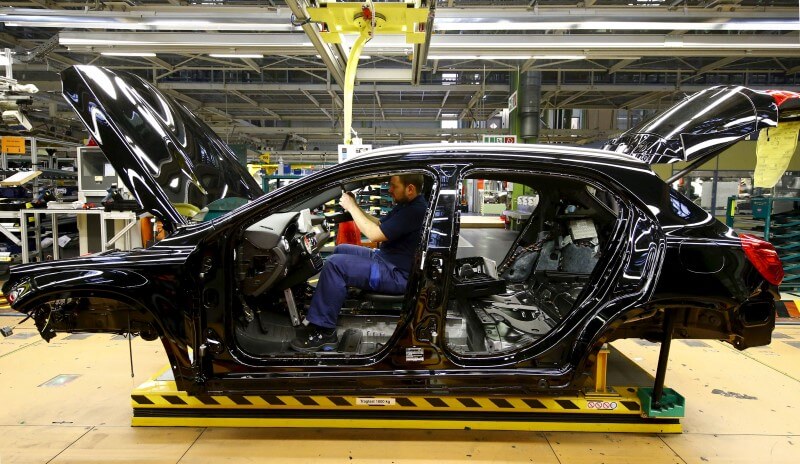By Michael Nienaber
BERLIN (Reuters) – Strong demand from euro zone countries for German industrial goods helped to cushion a drop in domestic orders in May, but the overall lackluster data suggested that growth in Europe’s largest economy would slow in the second quarter. Bookings for ‘Made in Germany’ goods were unchanged in May from April, data from the Economy Ministry showed on Wednesday. The zero reading was below a Reuters consensus forecast for a rise of 1.0 percent. “The stagnation in orders is a clear disappointment,” Bankhaus Lampe economist Alexander Krueger said, adding industrial orders were likely to shrink in the second quarter compared to the first three months of the year. “Of course, this has nothing to do with the Brexit aftermath,” Krueger said in reference to Britain’s decision to leave the European Union.
Economists have warned that Britain’s decision to leave the European Union is likely to hit German exports and reduce growth by as much as half a percentage point next year.
But record-high employment and rising real wages are helping German consumers’ loosen their purse strings, making private consumption the most important growth driver of the economy.
The main problem for German industry was still the sluggish growth of the world economy, Krueger said.
In May, it was mainly German firms that scaled back bookings for industrial goods. Domestic demand fell by 1.9 percent compared to April, while foreign orders rose 1.4 percent with demand from euro zone countries surging 4.0 percent. The data for April was slightly revised: Industry orders fell 1.9 percent compared to the previous month, from a previously reported decline of 2.0 percent.
“The orders in the industrial sector so far have been broadly stable this year apart from monthly fluctuations,” the Economy Ministry said in a statement.
“Business sentiment in the industrial sector recently improved again and is pointing to a further solid development.”
Retail sales in May enjoyed their strongest monthly increase since July 2015, while consumer morale hit its highest level in nearly a year heading into July, as record-low borrowing costs give Germans’ purchasing power an additional push. The German economy grew 0.7 percent in the first quarter, more than doubling its growth rate. Soaring private consumption, higher construction investment and state spending of refugees more than offset a dip in foreign trade. For the second quarter, analysts expect German economic growth to slow to around 0.3 percent.
(Reporting by Michael Nienaber; Editing by Caroline Copley)
German industry orders unchanged in May, weaker than expected

By Michael Nienaber
















